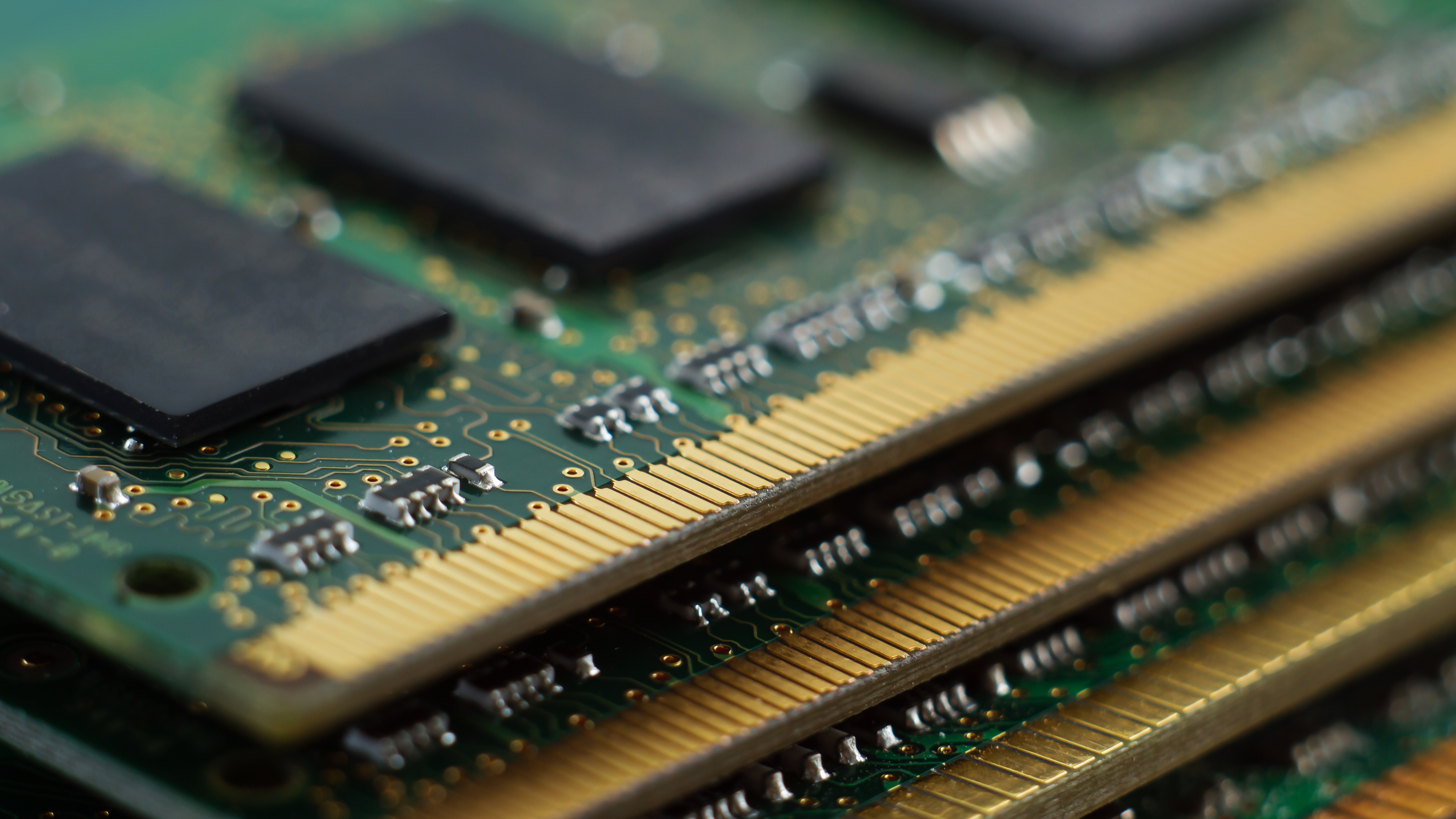RAM continues to get cheaper – and there’s a weird reason why
New DDR4 RAM sticks with repurposed memory modules are further depressing prices

System RAM has been falling in price considerably over the course of this year, though you’d never guess a reason for part of that downward pricing pressure in recent times for DDR4 memory.
Analyst firm TrendForce notes there’s a fresh trend with DDR4 RAM where manufacturers are reusing old memory chips in new products.
These chips primarily come from the two major South Korean suppliers’ legacy processes and are reused in PC DRAM and consumer DRAM products after software modifications. In terms of performance, the reused chips from the Korean suppliers can reach a data rate of 3200MT/s.…August 1, 2023
How it works is this: the RAM maker has a bunch of old server memory sticks, and removes the chips from them, reflashes the chips, and then uses those modules in a product sold as new.
So, that RAM stick is kind of new, but also not. It’s a bit like buying a ‘new’ car, where everything is freshly made and put together, except the engine has been taken from a used car, and reconditioned. Would you be happy with that idea? No, you most likely wouldn’t.
As Tom’s Hardware, which spotted TrendForce’s tweet, points out, these products will still have some kind of warranty and you’ll be covered if they do go wrong – inside the warranty period, that is. Our concern is that a few years down the line, due to these chips coming with miles already on the clock, they are more likely to give up the ghost earlier than a DDR4 RAM stick made with, you know, new memory modules.
With an influx of these chips hitting the market right now, TrendForce observes that this is helping to push RAM prices down even further (when as mentioned, they’ve already fallen a great deal over the course of this year). That indicates there’s a fair old volume of these new-but-not-really-new memory sticks coming through onto the shelves.
Analysis: What to do about the RAM flimflam?
This is an odd situation, indeed, and doubtless a bit of a worry for those buying DDR4. The only positive news here is that at least prices are still heading downwards – for now. (Don’t forget that as previously predicted, RAM pricing is expected to increase next year).
Sign up for breaking news, reviews, opinion, top tech deals, and more.
Is there anything you, as a consumer looking to buy RAM for your desktop PC, can do to ensure that you’re not getting repurposed memory modules? The short answer to that is, well, not really, but there’s one clue TrendForce gives us that’s of help in this respect. Namely that these memory chips run up to a maximum of 3200 MT/s (megatransfers per second).
For DDR4, what that equates to is a (maximum) memory speed of 1600MHz. So, if you’re looking to buy super-speedy memory like some of the best RAM sticks out there, which run faster than 1600MHz, this isn’t something you’ll have to fret about.
Buy 1600MHz DDR4 or slower, though, and flirt with cheap RAM, and you might run some risk of encountering these repurposed memory modules. So, if that’s something you wish to avoid, it might be time to wait for a little while until these RAM sticks are cleared out, and the practice falls by the wayside.
That’ll likely happen as RAM prices rise next year, assuming that forecast pans out. The problem will be balancing making a purchase before the market starts turning too much and prices head upwards more rapidly (perhaps – this is all crystal ball gazing and informed guesswork, after all).
Do remember that this only applies to DDR4 RAM, and not the latest DDR5 sticks, of course.
Darren is a freelancer writing news and features for TechRadar (and occasionally T3) across a broad range of computing topics including CPUs, GPUs, various other hardware, VPNs, antivirus and more. He has written about tech for the best part of three decades, and writes books in his spare time (his debut novel - 'I Know What You Did Last Supper' - was published by Hachette UK in 2013).